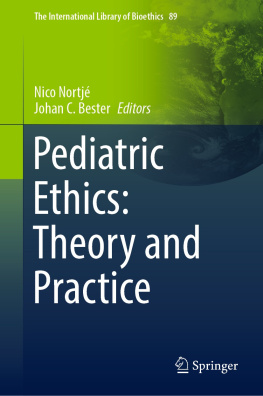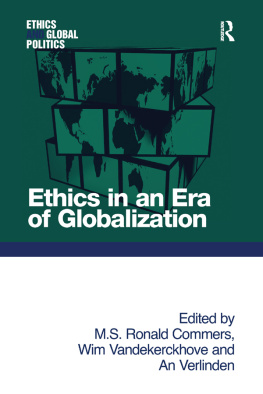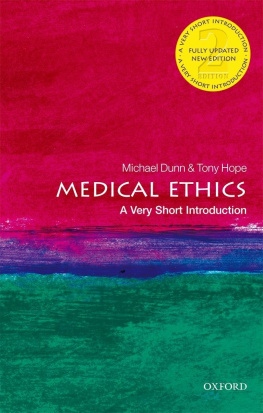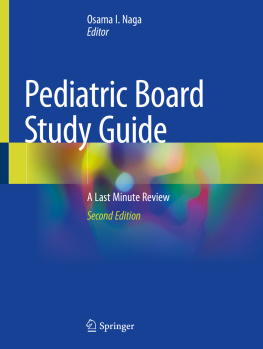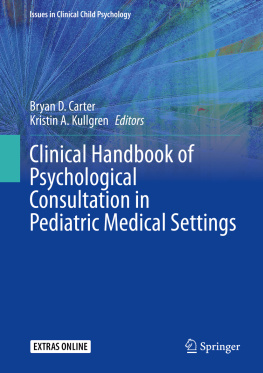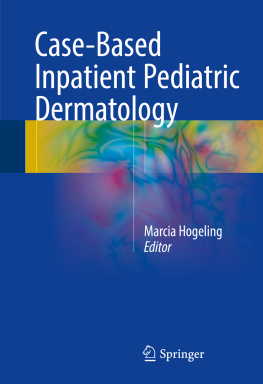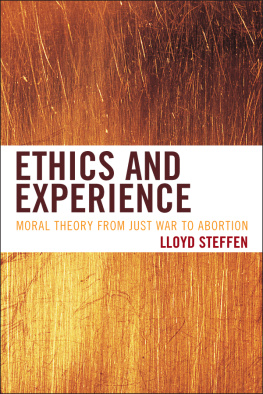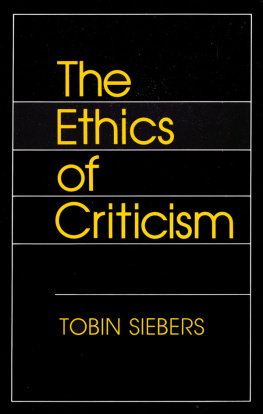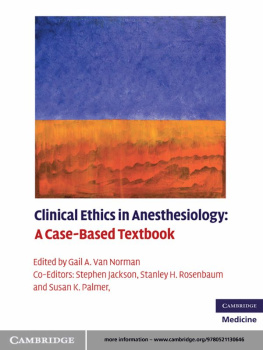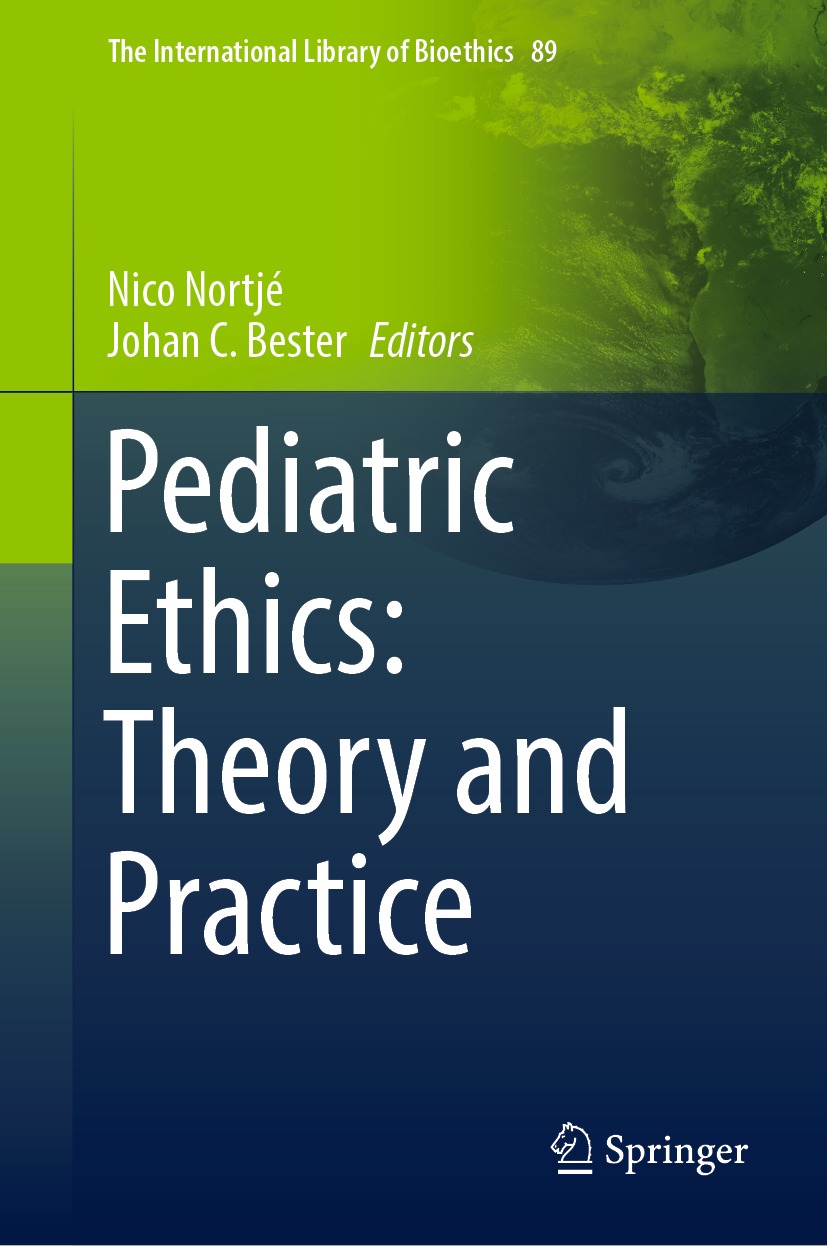Volume 89
The International Library of Bioethics
Series Editor
Dennis R. Cooley
North Dakota State University, History, Philosophy, & Religious Studies, Fargo, ND, USA
Editorial Board
Terry Carney
Faculty of Law Building, University of Sydney, Sydney, Australia
Marcus Dwell
Philosophy Faculty of Humanities, Universiteit Utrecht, Utrecht, Utrecht, The Netherlands
Sren Holm
Centre for Social Ethics and Policy, The University of Manchester, Manchester, UK
Gerrit Kimsma
Radboud UMC, Nijmegen, Gelderland, The Netherlands
Daniel P. Sulmasy
Edmund D. Pellegrino Center for Clinical, Washington, DC, USA
David Augustin Hodge
National Center for Bioethics, Tuskegee University, Tuskegee Institute, AL, USA
Nora L. Jones
Center for Urban Bioethics, Temple University, Philadelphia, USA
Advisory Editor
David N. Weisstub
Faculty of Medicine, University of Montreal, Montral, QC, Canada
Founding Editors
David C. Thomasma
Universit de Montral, Dordrecht, Zuid-Holland, The Netherlands
David N. Weisstub
Universit de Montral, Montral, QC, Canada
Thomasine Kimbrough Kushner
University of California, Berkeley, CA, USA
The International Library of Bioethics formerly known as the International Library of Ethics, Law and the New Medicine comprises volumes with an international and interdisciplinary focus on foundational and applied issues in bioethics. With this renewal of a successful series we aim to meet the challenge of our time: how to direct biotechnology to human and other living things' ends, how to deal with changed values in the areas of religion, society, and culture, and how to formulate a new way of thinking, a new bioethics.
The International Library of Bioethics focuses on the role of bioethics against the background of increasing globalization and interdependency of the world's cultures and governments, with mutual influencing occurring throughout the world in all fields. The series will continue to focus on perennial issues of aging, mental health, preventive medicine, medical research issues, end of life, biolaw, and other areas of bioethics, whilst expanding into other current and future topics.
We welcome book proposals representing the broad interest of this series' interdisciplinary and international focus. We especially encourage proposals addressing aspects of changes in biological and medical research and clinical health care, health policy, medical and biotechnology, and other applied ethical areas involving living things, with an emphasis on those interventions and alterations that force us to re-examine foundational issues.
More information about this series at https://link.springer.com/bookseries/16538
Editors
Nico Nortj and Johan C. Bester
Pediatric Ethics: Theory and Practice

Logo of the publisher
Editors
Nico Nortj
The University of Texas MD Anderson Cancer Center, Houston, TX, USA
Johan C. Bester
UNLV School of Medicine, University of Nevada, Las Vegas, Las Vegas, NV, USA
ISSN 2662-9186 e-ISSN 2662-9194
The International Library of Bioethics
ISBN 978-3-030-86181-0 e-ISBN 978-3-030-86182-7
https://doi.org/10.1007/978-3-030-86182-7
Springer Nature Switzerland AG 2022
This work is subject to copyright. All rights are reserved by the Publisher, whether the whole or part of the material is concerned, specifically the rights of translation, reprinting, reuse of illustrations, recitation, broadcasting, reproduction on microfilms or in any other physical way, and transmission or information storage and retrieval, electronic adaptation, computer software, or by similar or dissimilar methodology now known or hereafter developed.
The use of general descriptive names, registered names, trademarks, service marks, etc. in this publication does not imply, even in the absence of a specific statement, that such names are exempt from the relevant protective laws and regulations and therefore free for general use.
The publisher, the authors and the editors are safe to assume that the advice and information in this book are believed to be true and accurate at the date of publication. Neither the publisher nor the authors or the editors give a warranty, expressed or implied, with respect to the material contained herein or for any errors or omissions that may have been made. The publisher remains neutral with regard to jurisdictional claims in published maps and institutional affiliations.
This Springer imprint is published by the registered company Springer Nature Switzerland AG
The registered company address is: Gewerbestrasse 11, 6330 Cham, Switzerland
Preface
Dear reader,
It is often said in pediatrics that children are not just little adults. When this is said, the meaning is that children are physiologically and developmentally different than adults, get different kinds of diseases, and respond differently to medications and treatments. One cannot just apply concepts applicable in adult medicine directly to the treatment of children; children require special treatments and special considerations.
The same can be said for pediatric ethics. Children are not just little adults, and we cannot approach ethical issues that affect the care of children by merely extrapolating from adult medicine. Children are unique. They are vulnerable, dependent on others for their wellbeing. Children are in a state of development and require a variety of things to be in place to secure adequate development and flourishing. Children lack the capacity to make their own decisions and to advocate for their own interests. The parent-child relationship is important to children and to society. These various factors mean that children are uniquely situated and that the ethical issues that arise in pediatric medicine are therefore unique.
As an independent academic and clinical field of inquiry, bioethics is still relatively young. The pioneers of bioethics laid the foundations of the field in the 1970s and onwards and were initially very concerned about the implications of the concept of autonomy for health care. For the first few decades of its existence, bioethics was laser focused on topics related to informed consent, respect for autonomy, the tension between autonomy and beneficence, and the like. These are all topics related to adult medicine and assume a freely choosing adult patient as the focus of ethical reflection.
The work on questions surrounding autonomy continues within bioethics, but over the past 25 years there has been a gradual recognition that ethical issues in pediatrics require focused attention in its own right. Scholars and pediatricians recognized that the 4-principle model does not fit directly into pediatric practice like it does in adult medicine, and we cannot simply extrapolate from ethical issues in adult medicine to find solutions for ethical questions in pediatric medicine. Gradually, as more and more work were published that focused on ethical issues in pediatrics, the field of pediatric ethics as a specialized area of focus developed. And as this field continues to develop, it is clear that the ethical questions, frameworks, and solutions relevant to pediatric medical practice are unique as children are unique.

